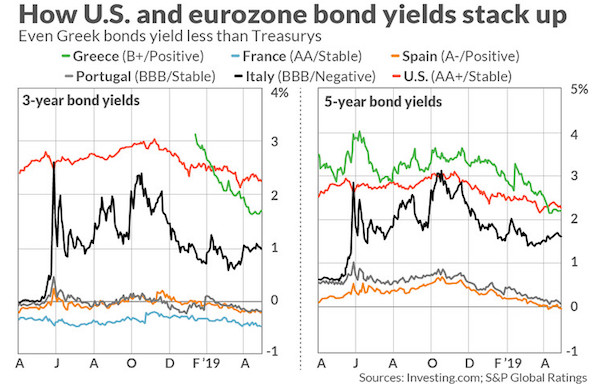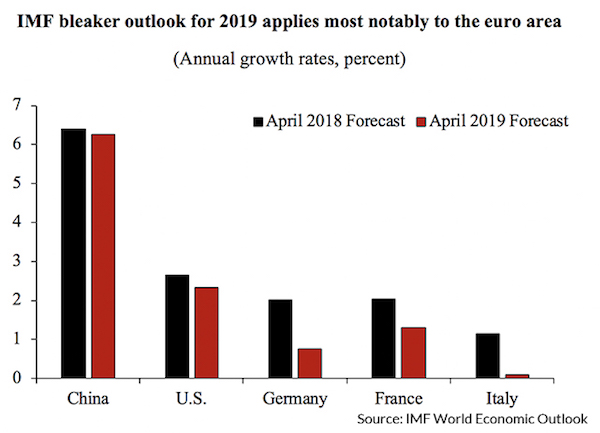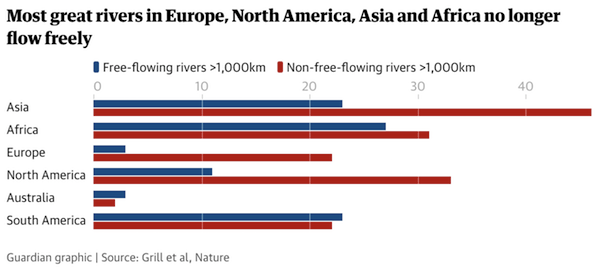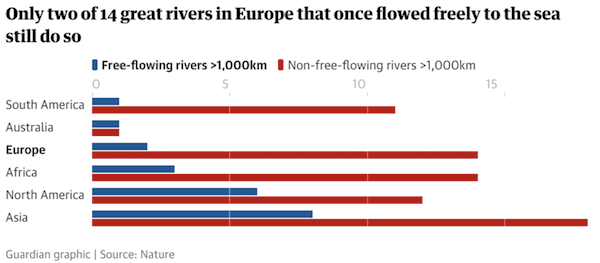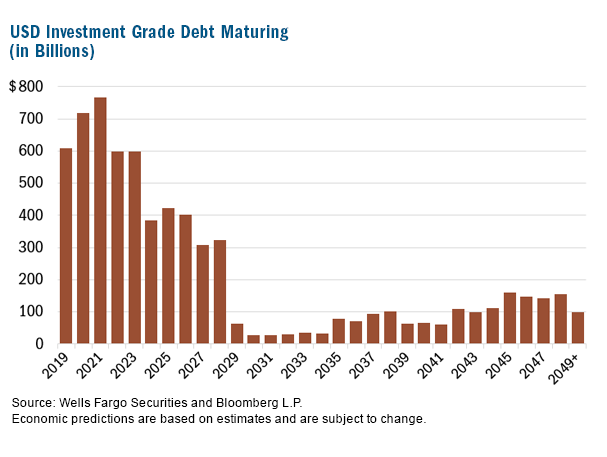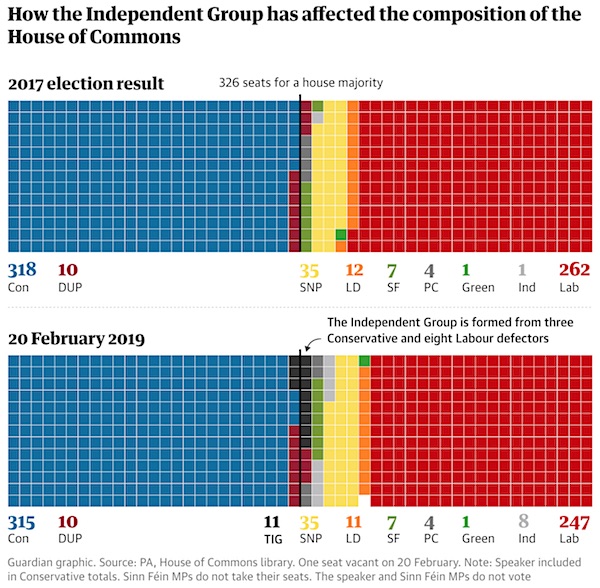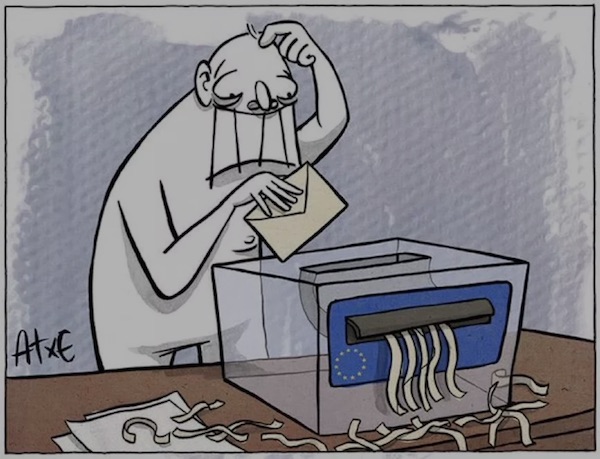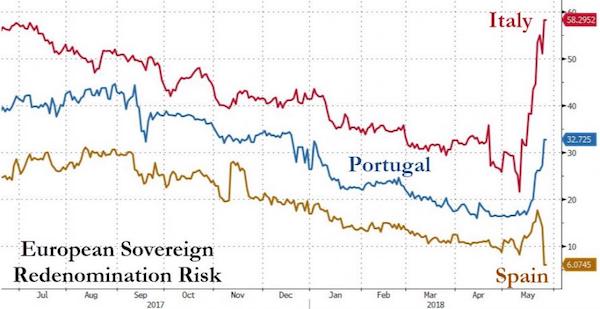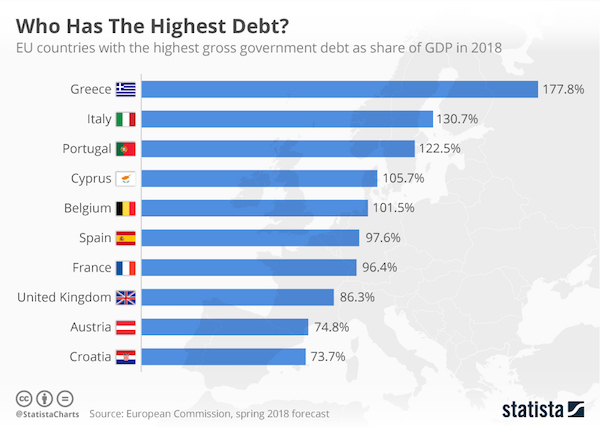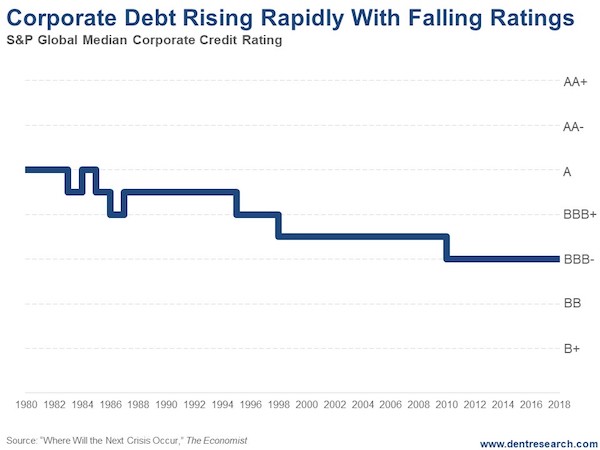
Elliot Erwitt New York 1955

One of those days where we can see how much is wrong with the so-called US justice system. Ashley Judd has her case vs Weinstein narrowly re-installed, a judge has a private law firm take over the role of the state in the case of a lawyer who helped Ecuadorians vs Chevron, Purdue’s owners declare bankruptcy -after siphoning off billions- to escape scrutiny for 450,000 opioid deaths, it’s all in a day’s work. And that’s before we even look at the travesty that is the case vs Assange.

Afraid the world set a new all-time high. US didn’t, but deaths keep rising. Brazil set records in both categories.
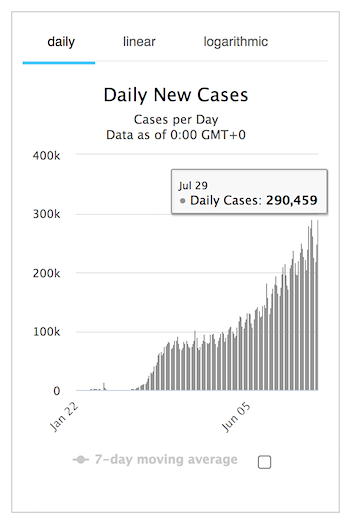

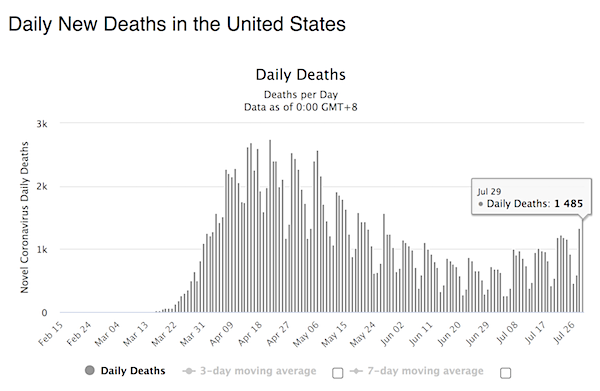



Brad Setser
Here is a prediction —
Despite all the talk about the demise of the dollar as a reserve currency (including by GS of all places … ), when the IMF's data on dollar reserve holdings at the end of q3 is released, the world will hold more dollar reserves than it does now
1/n pic.twitter.com/5Nx44hqF17
— Brad Setser (@Brad_Setser) July 29, 2020

“..prompted some Western media to question whether Moscow is putting national prestige before solid science and safety ..
As opposed to profit, you mean?
• Russian COVID-19 Vaccine Approval Imminent (R.)
Russia’s first potential COVID-19 vaccine will win local regulatory approval in the first half of August and be administered to frontline health workers soon afterwards, a development source close to the matter told Reuters. A state research facility in Moscow – the Gamaleya Institute – completed early human trials of the adenovirus-based vaccine this month and expects to begin large-scale trials in August. The vaccine will win regulatory approval from authorities in Russia while that large-scale trial continues, the source said, highlighting Moscow’s determination to be the first country in the world to approve a vaccine.
The speed at which Russia is moving to roll out the vaccine has prompted some Western media to question whether Moscow is putting national prestige before solid science and safety. “(Regulatory) approval will be in the first two weeks of August,” the development source said. “August 10 is the expected date, but it will definitely be before August 15. All (trial) results so far are highly positive.” The source added that Russian health workers treating COVID-19 patients will be offered the chance of volunteering to be vaccinated soon after the vaccine receives the regulatory approval.

Not the same studies as the other day. I don’t recall seeing “viral replication” mentioned before.
• 3/4 of Recovered Coronavirus Patients Have Heart Damage Months Later (People)
Well over half a year into the COVID-19 pandemic, experts are learning more about the virus that was initially believed to be only a respiratory illness. Over time, it’s become clear that COVID-19 attacks far more than just the lungs, and new research indicates that it can leave lasting heart damage, even in formerly healthy people who have recovered from the initial symptoms. Two new studies, both from Germany, examined the effects of COVID-19 on the heart, with one focusing on recovered patients and the other on older victims of the virus. The first study, published Monday in JAMA Cardiology, found that three-quarters of recovered COVID-19 patients were left with structural changes to their hearts, even two months later.
The researchers examined cardiac MRIs from 100 recovered COVID-19 patients between the ages of 45 to 53, and compared them to MRIs of similar people who did not contract the virus. Most of the COVID-19 patients had recovered at home, while 33 had to be hospitalized at some point in their illness. Of the 100 COVID-19 patients, 78 had structural changes to their hearts. Within that group, 76 had a biomarker that is typically found in patients who had a heart attack, and 60 had heart inflammation, called myocarditis. The patients were all “mostly healthy … prior to their illness,” the researchers said. “The patients and ourselves were both surprised by the intensity and prevalence of these findings, and that they were still very pronounced even though the original illness had been by then already a few weeks away,” study co-author Dr. Valentina Puntmann, a consultant physician, cardiologist and clinical pharmacologist at University Hospital Frankfurt in Germany, told UPI.
The second study, also published in JAMA Cardiology, looked at autopsy reports from 39 COVID-19 victims between 78 and 89 years old who died at the start of the pandemic. The researchers found that the virus had infected the heart in 41 percent of the patients. “We see signs of viral replication in those that are heavily infected,” study co-author Dirk Westermann, a cardiologist at the University Heart and Vascular Centre in Hamburg, told Stat. “We don’t know the long-term consequences of the changes in gene expression yet. I know from other diseases that it’s obviously not good to have that increased level of inflammation.” On Sunday, Boston Red Sox pitcher Eduardo Rodriguez confirmed that he won’t yet start the new MLB season because he is dealing with myocarditis, the heart inflammation found in the first study, in the months after he contracted COVID-19. Rodriguez is currently waiting on further MRI results to see if he can play.

Great moment to annnounce foreigners are welcome again – if they have health insurance.
• Brazil Hits Record Daily Coronavirus Cases, Fatalities (R.)
Brazil set daily records on Wednesday for new COVID-19 cases and related fatalities, as the world’s second-worst outbreak hurtles toward the milestone of 100,000 dead amid easing lockdowns. Brazil is the country worst hit by COVID-19 outside of the United States in both its death toll and case count. The 69,074 new confirmed cases and 1,595 additional deaths reported by the Health Ministry pushed the country past 2.5 million infections and 90,000 killed. President Jair Bolsonaro has fought against restrictions on economic activity, and the disease has advanced as governors and mayors have yielded to the pressure. In some cases, Brazilians have packed into bars and crowded public squares without masks, often in defiance of local rules.
Last week, Brazil recorded 7,677 deaths from COVID-19, the most fatalities in any week since the pandemic began, defying repeated predictions that the outbreak had peaked. “Brazil is experiencing the worst phase of the pandemic,” said Alexandre Naime, head of the department of infectious diseases at Sao Paulo State University. “Paradoxically, public policy and personal behavior are going in the opposite direction, as if we are not living through a daily tragedy,” he added. Bolsonaro’s government announced Wednesday that it will lift a ban on foreign travelers flying into the country that has been in place since March, so long as they have health insurance coverage for their trip.

Piece of advice: you can put him out by the curb now. He’s done. You won’t find even enough stupid Americans to buy into this stuff. 7 months after saying facemasks were not needed, then walking that back, now you need to shield your eyes? Half the nation will just flip him the bird.
• Fauci Recommends Eye Protection To Prevent Contracting Coronavirus (Axios)
NIAID director Anthony Fauci told ABC News in an Instagram live discussing the coronavirus pandemic Wednesday evening, “If you have goggles or an eye shield, you should use it.” Eye protection is not currently included in formal guidance on COVID-19. The CDC only advises that health care workers use eye protection “in areas with moderate to substantial community transmission.” After ABC’s Jennifer Ashton asked Fauci if he could envision the point where eye protection would be recommended, he replied: “It might, if you really want perfect protection of the mucosal surfaces.” Fauci noted that eye protection was “not universally recommended, but if you really want to be complete, you should probably use it if you can.” He explained that the coronavirus infects mucosal surfaces, like the nose and mouth, along with the eyes. “Theoretically, you should protect all the mucosal surfaces,” Fauci added.

Can someone explain what is wrong with a temp extension of unemployment benefits and the eviction ban, given that the sides are miles apart?
• Political Talks Stall In US On Next Round Of Coronavirus Spending (AlJ)
Talks between United States congressional leaders and the White House on a next round of coronavirus spending stalled on Wednesday. Treasury Secretary Steven Mnuchin suggested a short-term extension of federal unemployment benefits and a ban on evictions, but Democrats rejected the idea and blamed Republicans for failing rise to the dire moment confronting the nation. “As of now, we’re very far apart,” Mnuchin told reporters at the White House on Wednesday. “And because of that, the president and we have discussed a short-term extension to UI [unemployment insurance] and the evictions so that we have some period to negotiate before this runs out.”
Unemployment insurance benefits of $600 a week and a federal ban on evictions passed by Congress in March and April are expiring at the end of July. Millions of Americans – as much as half the US working population – have lost their jobs because of the coronavirus. Republicans in the US Senate and Democrats in the House of Representatives have proposed between $1 trillion and $3 trillion in new spending to keep the US economy going, but they differ sharply on how to spend the money and on best approaches to the coronavirus pandemic. “We’re looking at a deadline, obviously, of this Friday,” Mnuchin said. “If we can’t reach an agreement by then, the president wants to look at giving us more time to negotiate this.”
The federal government and many state and local governments have imposed temporary bans on evictions, the legal removal of people from their homes when they cannot pay rent or mortgages. The federal eviction ban is expiring, as are many state and local prohibitions on court action to force evictions. “We want to work on the evictions so that people don’t get evicted. We’ll work on the payments for the people. And the rest of it, we’re so far apart, we don’t care. We really don’t care,” Trump said. On Capitol Hill, Democratic leaders rejected the idea of a short-term extension of unemployment benefits and the renewal of the eviction ban and blamed Republicans for failing to put forward adequate proposals to meet the crisis.
“We are not accepting that,” the top Democrat in Congress, House Speaker Nancy Pelosi, said. “We don’t know why the Republicans come around here with a skinny bill that does nothing to address what’s happening with the virus,” Pelosi told reporters at the US Capitol after meeting with Republicans.

Far from over.
• A $10 Trillion Corporate Debt Bomb Is Waiting to Explode the US Economy (NW)
Even before the pandemic reached its height, the IMF was warning in January that the world’s largest economies like the U.S. were unprepared for a slowdown. Fast forward half a year, with millions of lost jobs and thousands of businesses gone bankrupt in the U.S. because of the novel coronavirus, the word slowdown is inadequate to describe the scale and speed of the economic collapse. And the pandemic could yet throw another grenade at the economy: A massive corporate debt explosion. The American economy has lived on debt for a long time. The ratio of the total debt of the government, businesses, and consumers relative to GDP has more than doubled since the 1980s. Record-low interest rates following the 2008 financial crisis further swelled the debt significantly.
U.S. companies owe more than $10 trillion, which is nearly half of the country’s 2019 GDP of $21.5 trillion. Taking other forms of business debt into consideration, including partnerships and small businesses, that figure stands at an eye-watering $17 trillion, the Financial Times reported earlier this month. “This increase in debt has contributed to increased economic volatility, and has left the country in a weakened position to deal with shocks such as the current virus,” Robert Goldberg, associate professor of finance and economics at Adelphi University in New York, told Newsweek. In the last few months, this mountain of corporate debt has been compounded by a once-in-a-century event.
Following the lockdown of state and local economies in March, the corporate debt market froze and there was a slump in the issuance of new bonds, in particular for non-investment grade debt. To get bonds flowing again, the Federal Reserve announced a program to support the corporate debt market, which improved liquidity. The Fed’s move to buy $750 billion in corporate debt, and the Main Street lending program making $600 billion in loans to small and mid-sized companies, helped indebted firms avoid bankruptcy. But it also added to the debt pile. Aimed mostly at the investment-grade debt market, the issuance of non-investment grade debt “has skyrocketed” in the last few months, said David Gulley, professor of economics at Bentley University, Massachusetts. “Long term, however, it’s not clear whether the now highly indebted companies will be able to survive, especially in industries like travel and leisure,” he told Newsweek.
This week, the U.S.Travel Association wrote a letter signed by 14 industry leaders asking President Donald Trump and Congress to expand coronavirus testing to revive the struggling travel sector. The association warned the travel sector may produce $1.2 trillion less for the U.S. economy by the end of 2020 than the previous year. Many other sectors are suffering and businesses will be looking for lifelines. “If the defaults become widespread, credit spreads will increase, making it more expensive for companies to raise money to fund operations,” Gulley said. “Additional business shutdowns and layoffs would occur, potentially on a large scale. The longer the economic problems continue, the more likely it is the defaults will begin to pick up, especially in the non-investment grade sector of the debt market.”

Co-dependency, a well-known condition in addiction psychology.
• China Needs ‘Explosive’ Buying To Meet US Farm Import Target (R.)
With nearly seven months gone, an ambitious $36.5 billion target for Chinese imports of U.S. farm goods this year may not be quite out of reach, but it’s looking like a big, big stretch. By end-May, imports were running behind 2017 levels – rather than 50% ahead as needed – and while orders for China’s main farm import, soybeans, have started to pick up, scorching levels of buying would be needed to hit the mark. Add in a rapid deterioration in U.S.-China relations, an upcoming U.S. election, a global pandemic and questions over just how much soybeans China actually needs, and farmers and analysts say it may be a stretch too far. “It just doesn’t seem likely to me,” said John Payne, senior futures & options broker with Daniels Trading in Chicago.
“If the global economy was more normal then maybe, but you have this whole COVID problem.” Beijing and Washington sealed their Phase 1 trade deal in January after two years of acrimony and a steep slump in imports by one of the biggest buyers of U.S. agricultural goods. Analysts at the time expressed reservations about the farm goods target, which is a quarter above 2013’s all-time high of $29 billion. Still, Chinese buyers stepped up purchases this year of a range of farm imports, sealing record deals in corn and meat imports, prompting some optimism. “If I were to grade them today, we went from a C- to a B, and if it continues maybe we can start to see higher levels. But it needs to be a continual, ongoing affair,” said Dan Basse, president of AgResource Co in Chicago.
The chances of meeting the target will be clear in the next few months. Soybeans typically account for about half of China’s U.S. farm imports and the vast bulk of buying comes in the last three months of the year when supplies from top grower Brazil dry up. After a slow start, Chinese importers booked more than $2.5 billion in U.S. soy purchases in just the past eight weeks. “We may be on the verge of really beginning to ramp up sales to China. I think you’re going to start seeing these chunks of soybean sales happening pretty soon because Brazil’s getting close to sold out,” said John Baize, president of consultancy John C. Baize & Associates.

Just things they were already doing. Of course they’re not going to use the USD if they can help it. Where it gets interesting is where they can’t help it.
• Russia and China Speed Up De-Dollarization Process (RT)
After years of talking about abandoning the US dollar, Russia and China are doing it for real. In the first quarter of 2020, the share of the dollar in trade between the countries fell below 50 percent for the first time. To give an indication of the scale of the adjustment, just four years ago the greenback accounted for over 90 percent of their currency settlements. According to Moscow daily Izvestia, the share has dropped to 46 percent, tumbling from 75 percent in 2018. The 54 percent of non-dollar trade is made up of Chinese yuan (17 percent), the euro (30 percent), and the Russian ruble (7 percent). The dollar’s reduced role in international trade can mainly be blamed on the ongoing trade war between the US and China.
Relations between the two countries have deteriorated even further in 2020, after US politicians accused Beijing of hiding the severity of Covid-19 and President Donald Trump called disease the “China Virus” and “Kung Flu.” In January, Russian Foreign Minister Sergey Lavrov explained that Moscow is continuing “its policy aimed at gradual de-dollarization” and is looking to make deals in local currencies, where possible. Lavrov called the rejection of the greenback “an objective response to the unpredictability of US economic policy and the outright abuse by Washington of the dollar’s status as a world reserve currency.”

All in the name of Chevron, the judge appoints a private law firm to take the place of the state. Which then pays the firm $250,000 and counting to harass someone accused of a mere misdemeanor, who’s been under house arrest for a year. Only in America. Well, and the UK perhaps.
• Private Feds Cash In on Unusual Contempt Case (CN)
With trial still months away, taxpayers have paid more than a quarter-million dollars to a private law firm deputized by a federal judge to convict an environmental attorney of misdemeanors. That is only one of the many oddities of United States v. Steven Donziger, a criminal contempt case against a lawyer defending a more than $9 billion verdict that he helped Ecuadorean villagers obtain against Chevron for oil contamination in the Amazon rainforest in 2011. “So — the punchline is: The government has spent $254,930 to date prosecuting a misdemeanor,” Donziger’s attorney Zoe Littlepage summarized in an email to her co-counsel and her client. “There has been 1,001 hours of work done.”
Obtained exclusively by Courthouse News, billing records from Donziger’s unusual criminal prosecution show how much the white-shoe law firm Seward & Kissel has collected since being appointed as the “government” roughly a year ago in lieu of the Department of Justice. Those bills, for professional services rendered from August 2019 through the end of May this year, have not come with traditional government rates. The firm already has billed nearly 75 times more than the maximum a court-appointed private criminal defense attorney can collect for defending indigent clients facing misdemeanor allegations, and the private prosecution’s billable hours show no signs of abating.
“DOES ANYONE ELSE FIND THIS UNBELIEVABLE,” Littlepage exclaimed in the email dated Monday. Spanning nearly three decades and continents, the legal saga over Ecuadorean pollution has been filled with surprises. Donziger helped rainforest residents and indigenous groups stun much of the world nearly a decade ago with the defeat of Chevron in Ecuador, and the oil giant’s relentless counterattack took unexpected turns in a quest to discredit that verdict as a product of fraud and racketeering. U.S. District Judge Lewis Kaplan, who ruled for Chevron in 2014, presided over what began as a civil dispute before personally demanding the creation of a criminal one. The Clinton appointee drafted the charge sheet and handpicked the prosecutors. In this next stage, however, it is U.S. District Judge Loretta Preska, the former chief of the Southern District, who reigns.

Go bankrupt and all claims disappear.
• The New Fight to Hold Purdue, the Sacklers Accountable for Opioid Crisis (IC)
When news first broke last September that Purdue Pharma was filing for bankruptcy, many victims of the deadly opioid crisis, for which the company holds immense responsibility, believed there was reason to celebrate. The demise of the privately owned pharmaceutical corporation, the creator of OxyContin, had been the goal of activists, victims, and their families for well over a decade. For those familiar with the vagaries of bankruptcy law, however, it was immediately clear that the Chapter 11 filing was just the latest move by Purdue executives and its owners, members of the Sackler family, to evade justice and dodge accountability.
In filing for voluntary bankruptcy, Purdue was able to shield itself from the 2,600 federal and state lawsuits it was facing for its role flooding the U.S. with prescription opioids, contributing to the deaths of over 450,000 people since 1999. Purdue executives and members of the Sackler family were accused, in case after case, of misleading doctors and patients about the addictive nature of OxyContin, while amassing a multibillion-dollar fortune. The bankruptcy filing invoked an automatic stay of civil litigation against the company. And while the billionaire Sacklers are by no means facing personal bankruptcy, they too have been granted a stay of litigation. If they get their way in court, as they are likely to do, the bankruptcy settlement could shield the Sackler family from all future claims — and influence whether they are subject to criminal liability, too.
The full extent of Purdue’s — and the various Sacklers’ — malfeasance in knowingly creating a mass market in addiction could remain hidden in sealed documents. The move to bury what should be a mass public reckoning in the opaque crevices of bankruptcy court typifies underhanded Sackler marketing practices. In response, those fighting for accountability have been forced to navigate a complex legal terrain in efforts to access even a shred of justice. Individuals who have suffered from opioid addiction or lost loved ones to the Sackler-produced crisis have until the end of July to file claims of wrongful death and “personal injury” — a gross legalistic euphemism — as creditors in the bankruptcy settlement. They should be entitled to resources far greater than the payout will offer.
For numerous survivors, however, the primary demand in their claims is the very thing Purdue’s bankruptcy aims to avoid: transparency. “For many of us who have been in this fight for so long, the money means less,” said Barbara Van Rooyan, who has campaigned against OxyContin’s proliferation since her son’s death from taking a single pill in 2004. “The biggest asset they have is the truth.”

How can a judge ever have thrown this out?
• Court Revives Ashley Judd’s Sexual Harassment Case Vs Harvey Weinstein (R.)
A federal appeals court revived actress Ashley Judd’s sexual harassment lawsuit against disgraced Hollywood producer Harvey Weinstein, saying she could sue under California law over his alleged attempt to help her career in return for sexual favors. The 9th U.S. Circuit Court of Appeals in San Francisco found on Wednesday that Weinstein had considerable power over Judd’s career in 1997, when they held a business meeting at his hotel and the alleged harassment occurred. “By virtue of his professional position and influence as a top producer in Hollywood, Weinstein was uniquely situated to exercise coercive power or leverage over Judd, who was a young actor at the beginning of her career,” the opinion said. The appeals court sent the case back to the lower court for further proceedings.
“This is an important victory not only for Ms. Judd but for all victims of sexual harassment in professional relationships,” said Judd’s lawyer Theodore Boutrous. Weinstein has maintained he never sexually harassed Judd. Weinstein was sentenced to 23 years in prison by a New York state court in March after his conviction for sexual assault and rape, a case that fueled the #MeToo movement. The actress, who was not part of the New York case, sued Weinstein in April 2018 for sexual harassment under a California law barring such conduct in a “business, service or professional relationship.” Last year, U.S. District Court Judge Philip Gutierrez dismissed that claim, finding Judd’s relationship with Weinstein was not covered by the California law. The appeals court found this was a misinterpretation.

First, it’s obvious that the “reclaiming my time” line came out of a strategy meeting, they didn’t all independently from each other think of it. But that line is reserved for witnesses that try just to fill up time (filibuster), not for interrupting them 5 seconds after you ask them to answer a question. “Jayapal allowed Barr to speak for less than 60 seconds during their six-minute exchange, and he never spoke longer than 10 seconds..”
This was a made for TV show, as were the impeachment hearings. The only way to avoid more of the same would seem to be to not allow cameras in.
• House Dems Say Barr Was Sexist, Hostile at Hearing (WFB)
House Democrats Madeleine Dean (Penn.) and Pramila Jayapal (Wash.) accused Attorney General William Barr of being sexist and hostile during his contentious Judiciary Committee testimony on Tuesday. Democrats repeatedly interrupted Barr at the hearing and condemned him as corrupt, racist, and dangerous, but Dean said Wednesday that Barr was “disrespectful” and particularly mistreated women. “We have to hold him accountable to the American people,” Dean said on MSNBC. “You saw his affect yesterday. He was disrespectful, spoke over top of every one of us. In particular, he spoke over women. He was flanked by at least 10 staffers, not a person of color among them…. It was so disrespectful, the way he approached Congress, the way he approached our committee.”
The Washington Free Beacon compiled a montage of Democrats repeatedly saying they were “reclaiming my time” during their testy interactions with Barr on Tuesday. On several occasions, Republicans on the Judiciary Committee gave Barr time during their questioning periods to respond to Democratic charges. Jayapal allowed Barr to speak for less than 60 seconds during their six-minute exchange, and he never spoke longer than 10 seconds without being interrupted by her. Yet she told CNN that she had to control her time, because otherwise Barr might testify too much. “Every witness knows that the way to get away from answering questions is to just be very slow in your answers, to thank the Congress members for that excellent question, to not answer, to obfuscate, because you only have five minutes,” she said.
“You have to take control of your time, because if you don’t, the witness will do it.” She added Barr was a “hostile witness.” Jayapal used much of her time to criticize Barr over the federal dispersal of protesters in Lafayette Park outside the White House on June 1. She accused him of a double standard by not similarly dispersing right-wing protesters at the Michigan State Capitol in May during demonstrations against Gov. Gretchen Whitmer (D.) and her coronavirus lockdown orders. Barr noted the White House is a federal building while Michigan’s capitol falls under the state’s jurisdiction, but Jayapal interrupted to charge him with prioritizing Trump’s “agenda.”

Talking about HCQ, am I the only one who noticed that the push against it started with “it can kill you”, but now it’s all about “it’s ineffective”? Not deadly anymore then?
• Flynn Attorney’s Twitter Account Partially Suspended Over HCQ Tweet (WE)
The Twitter account of Michael Flynn’s lead attorney was partially suspended for promoting the controversial antimalarial drug hydroxychloroquine as a coronavirus treatment. Sidney Powell, a former federal prosecutor who is representing President Trump’s former national security adviser in the government’s case against him, tweeted on Monday that the drug should be “available over the counter” and that it would “prevent and stop it for next to nothing.” Her account became “temporarily limited” shortly after because the platform said that the tweet violated the company’s rules on “spreading misleading and potentially harmful misinformation” related to the coronavirus.
A Twitter spokesperson said that the account was not suspended, which is how Jenna Ellis, a lawyer for Trump’s reelection campaign, broke the news, but that “some” account features would be limited for 12 hours because of the rule violation. Powell confirmed on Tuesday that her account was partially suspended. “Needless to say, that is an outrage,” she told the Washington Examiner. “Twitter should not be deciding what information is allowed. My tweet was based on information from numerous doctors. Congress must revoke the protections afforded these tech titans who must be required to allow free speech. CNN and others are pushing pure propaganda against hydroxychloroquine. It’s really astonishing to see such censorship against the president and others in what is supposed to be a free society.”

No one had any reason to be there, it was all about the new superseding indictment, and the judge didn’t have it. At least not from the prosecution. It was all for show.
• Assange Indictment: Old Wine in Older Bottles (OffG)
The topic of discussion during this administrative hearing was what was announced by the US Department of Justice on June 24, namely the second superseding indictment. That document proved to be a naked exercise of political overreach, adding no further charges to the already heavy complement of eighteen, seventeen of which centre on the US Espionage Act. The scope of interest, however, was widened, notably on the issue of “hacking” and conferencing. Assange is painted as devilish recruiter and saboteur of the international secret order, a man of the conference circuit keen to open up clandestine governments and make various reasons for doing so. According to the charging document, Assange and others at WikiLeaks recruited and agreed with hackers to commit computer intrusions to benefit WikiLeaks.”
Edward Fitzgerald QC, in representing Assange, fulfilled his norm, submitting that the recently revised document did little to inspire confidence in the nature of clarified justice. We are concerned about a fresh request being made at this stage with the potential consequences of derailing proceedings and that the US attorney-general is doing this for political reasons.” Fitzgerald reminded the court that US President Donald Trump had “described the defence case as a plot by the Democrats.” This should have been obvious, but Baraitser’s court would have none of it. To admit at this point that Assange is wanted for political reasons would make it that much harder to extradite him to the United States, given that bar noted in the US-UK Extradition Treaty.
Whilst it was good of Fitzgerald to make this point, he should know by now that his audience is resolutely constipated and indifferent to such prodding. Assange is to be given the sharpest, rather than the most balanced, of hearings. Accordingly, Baraitser insisted that Fitzgerald “reserve his comments” – she, in the true tradition of such processes, had not been supplied, as yet, with the US indictment. This made the entire presence of all the parties at the Westminster Magistrates’ not merely meaningless but decidedly absurd.

We try to run the Automatic Earth on donations. Since ad revenue has collapsed, your support is now an integral part of the process.
Thank you.





Support the Automatic Earth in virustime.





